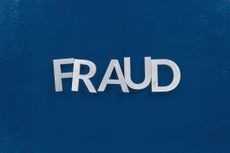Is Your First RMD Due April 1?
April Fool's Day is an important required minimum distribution (RMD) deadline for some older adults and retirees.


Many older adults and retirees are concerned about when to start taking required minimum distributions (RMDs). (RMDs are the minimum amount of money that must be withdrawn from certain retirement plan accounts every year once the account holder reaches a particular age.) These distributions can have significant practical, financial, and tax implications.
However, RMD rules, which apply to a range of retirement savings plans, have changed. For example, a few years ago, the SECURE Act raised the age for taking RMDs from 70.5 to 72. But when the SECURE 2.0 Act became law, the RMD age rose to 73. That raised questions for many about when RMDs were supposed to begin.
In any case, when it comes to when a first required minimum distribution is due, April Fool’s Day (Apri 1st) is an important deadline to remember. Here is more of what you need to know.

Sign up for Kiplinger’s Free E-Newsletters
Profit and prosper with the best of expert advice on investing, taxes, retirement, personal finance and more - straight to your e-mail.
Profit and prosper with the best of expert advice - straight to your e-mail.
When do RMDs start?
According to the IRS, April 1 is a key RMD deadline for some older adults receiving their first required distribution from an IRA, 401(k), or other retirement plan.
- That’s because your first RMD can be delayed until April 1 of the year following the calendar year in which you reach age 73 (if you reach age 72 after December 31, 2022).
- Subsequent RMDs generally have to be made by December 31.
- Delaying the first required distribution can result in two RMDs in one year with the first RMD being taken by April 1 and the second by December 31.
So, for example, if you reached age 72 in 2022, you should have taken your first RMD for 2022 on or before April 1, 2023, and your second RMD by December 31, 2023. That's because the SECURE 2.0 Act, which changed the RMD age from 72 to 73, wasn't effective for 2022.
Based on that example, the RMDs you received last year are taxable for 2023 and reported on your 2023 federal income tax return (tax returns being filed now, in the 2024 tax filing season).
If you turn 73 this year, in 2024, the IRS says your first RMD is due by April 1, 2025.
Related: One Key Rule for Understanding Your 2023 RMD
Which retirement plans require RMDs?
RMD rules don’t only apply to IRAs and 401(k)s. You must also take required minimum distributions if you have a traditional SEP, SIMPLE IRA, or a workplace 403(b) or 457(b) plan.
Do Roth IRAs have RMDs? Inherited IRAs have their own set of complicated rules. Meanwhile, Roth IRA accounts are not subject to RMD requirements until after the account owner dies. As of 2024, RMDs aren’t required for designated Roth 401(k) accounts. (However, 2023 RMDs are still required.)
RMD age
The SECURE 2.0 Act increased the age at which individuals are required to take minimum distributions from their retirement accounts. Starting on Jan. 1, 2023, individuals are required to take these distributions at age 73 instead of the previous age of 72. This is an important RMD rule change. Additionally, the RMD age will eventually rise to 75.
Delays in the age for taking RMDs raise tax implications and can present practical challenges. The latter can be particularly significant for retirees with lower incomes, who typically use RMDs to cover living expenses. As a result, it is important to consider how any RMD changes could impact you and plan accordingly.
RMD penalties
In the past, failing to meet the RMD deadline would result in a steep 50% penalty. However, with the introduction of SECURE 2.0, the RMD penalties have been reduced.
Under the new law, the penalty is a 25% excise tax on the late RMD or RMDs that do not meet the minimum amount. If you correct the RMD within a specific time (i.e., by the end of the second year after the RMD was due), the penalty can be as low as 10%.
Required minimum distributions: What you can do
It is important to know that required minimum distributions (RMDs) are taxed as ordinary income for federal tax purposes. State taxes may also apply, resulting in potentially significant tax consequences.
For instance, RMDs can push you into a higher federal tax bracket, which could result in a larger portion of your Social Security income being subject to tax. Alternatively, you may pay more for Medicare Part B or Part D if you are in a higher income tax bracket.
If you have concerns about how your RMDs (or failure to take an RMD) will impact your taxes, it's important to consult a trusted finance advisor or tax professional. The IRS also provides information on RMDs, including answers to frequently asked RMD questions, on its website.
Related

As the senior tax editor at Kiplinger.com, Kelley R. Taylor simplifies federal and state tax information, news, and developments to help empower readers. Kelley has over two decades of experience advising on and covering education, law, finance, and tax as a corporate attorney and business journalist.
-
 Strategies to Optimize Your Social Security Benefits
Strategies to Optimize Your Social Security BenefitsTo maximize what you can collect, it’s crucial to know when you can file, how delaying filing affects your checks and the income limit if you’re still working.
By Jason “JB” Beckett Published
-
 Don’t Forget to Update Beneficiaries After a Gray Divorce
Don’t Forget to Update Beneficiaries After a Gray DivorceSome states automatically revoke a former spouse as a beneficiary on some accounts. Waivers can be used, too. Best not to leave it up to your state, though.
By Andrew Hatherley, CDFA®, CRPC® Published
-
 'Instant' EV Tax Credits Are a Hit: $580M Paid This Year
'Instant' EV Tax Credits Are a Hit: $580M Paid This YearEV Credits Claiming federal electric vehicle tax credits at the point of sale is a new and popular option in 2024.
By Kelley R. Taylor Last updated
-
 Retirees Face Significant Tax Bills Due to Fraud
Retirees Face Significant Tax Bills Due to FraudFraud A new report sheds light on how older adult scam victims end up with big tax bills and lost retirement savings.
By Kelley R. Taylor Last updated
-
 Tax Day: Is the Post Office Open Late?
Tax Day: Is the Post Office Open Late?Tax Filing Tax Day means some people need to mail their federal income tax returns.
By Kelley R. Taylor Published
-
 High Earners: Beware of These Illegal Schemes to Lower Taxes
High Earners: Beware of These Illegal Schemes to Lower TaxesTax Schemes The IRS says high-income filers are targets for several illegal tax schemes.
By Katelyn Washington Last updated
-
 Mailing Your Tax Return This Year? What to Know Before You Do
Mailing Your Tax Return This Year? What to Know Before You DoTax Filing There are plenty of reasons not to mail your tax return this year, but here’s what you should know if you are.
By Katelyn Washington Last updated
-
 IRS Warning: Beware of Smishing and 'Helper' Tax Scams
IRS Warning: Beware of Smishing and 'Helper' Tax ScamsScams Tax season is a time to look out for email and text message scams.
By Kelley R. Taylor Last updated
-
 Most Expensive States to Live in for Homeowners
Most Expensive States to Live in for HomeownersProperty Taxes High property tax bills make the places on this list the most expensive states for homeowners to live in.
By Katelyn Washington Last updated
-
 Don’t Miss This $2,500 Tax Break for Paying Your Student Loan
Don’t Miss This $2,500 Tax Break for Paying Your Student LoanTax Deductions Do you qualify for the student loan interest deduction this year?
By Katelyn Washington Last updated